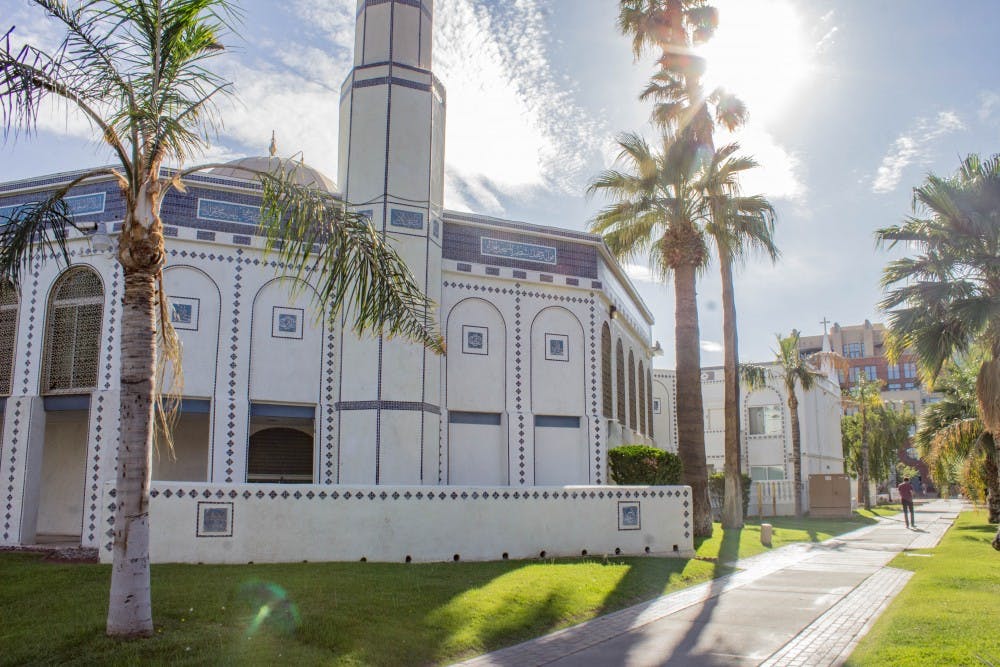On March 4, 2018, a Facebook live video was posted by two women who allegedly vandalized and burglarized the Islamic Community Center of Tempe, just north of ASU’s Tempe campus.
In the video, the women made prejudiced statements such as “the Muslims are nothing but devil Satan worshippers,” and encouraged the children they brought along to make similar comments. Both women were arrested following the incident.
When such an outright attack like this happens, it’s easy to view it as an isolated event carried out by radical outliers. However, this mindset can minimize the importance of such incidents and keep us from understanding the cause of these offenses.
Yasmin Saikia, the Hardt-Nickachos Chair in Peace Studies at ASU's Center for the Study of Religion and Conflict, said religious intolerance stems from ignorance.
“I think there is a lack of conversation between people of different religious faiths, and so there is a continuation of ignorance, and a lack of awareness of one another’s faith,” Saikia said. “It proliferates in media and conversation, reaffirming this intolerance.”
In the wake of the mosque vandalism, ASU students should consider how they can maintain the University’s reputation as an inclusive, diverse community. One way is to learn more about other faiths, and the University provides many opportunities to achieve this.
Students might consider taking an elective course on religious studies or attending a meeting for religious organizations on campus, such as the Muslim Students Association. Doing so brings students face-to-face with people who actually practice the faith and can dispel possible misconceptions.
Those passionate about Islamic culture may also consider adding a certificate in Islamic studies to their degree.
Another great organization is the Council of Religous Advisors, which promotes interfaith discussion and learning. Students who are interested should reach out to learn more about how they can become involved and interact more with people of differing faith.
Being exposed to the history, philosophy and beliefs of different faiths allows students to compare them with any misconceptions perpetuated by the media.
Still, students shouldn’t only be understanding and tolerant of other faiths, they should also be supportive.
Speaking out against religious intolerance is essential, especially on a public and diverse campus. Students are harassed based on their faith more often than people might think.
Even though ASU’s policies discourage this type of behavior, it still occurs due to the sheer number of people on campus. In these instances, students should come to the defense of those being harassed.
“There has to be an immediate response by a bystander to try to calm the situation without getting into any altercation,” Saikia said. “I think language is very important to both work with people who attack others and the person who feels attacked. Neutral language is very important for the bystander.”
The women who vandalized the mosque sought to alienate the Muslim community, but inadvertently brought people together in defense of their culture and belonging in America. Many within the interfaith community have expressed support for the Islamic Community Center of Tempe both in person and through phone calls, emails and Facebook messages.
Students should do what they can to align themselves with acceptance and solidarity, rather than with the hostile sentiments of the few who would rather express hatred.
Reach the columnist at jkbeneve@asu.edu or follow @JacobBenevento on Twitter.
Editor’s note: The opinions presented in this column are the author’s and do not imply any endorsement from The State Press or its editors.
Want to join the conversation? Send an email to opiniondesk.statepress@gmail.com. Keep letters under 500 words and be sure to include your university affiliation. Anonymity will not be granted.
Like The State Press on Facebook and follow @statepress on Twitter.




